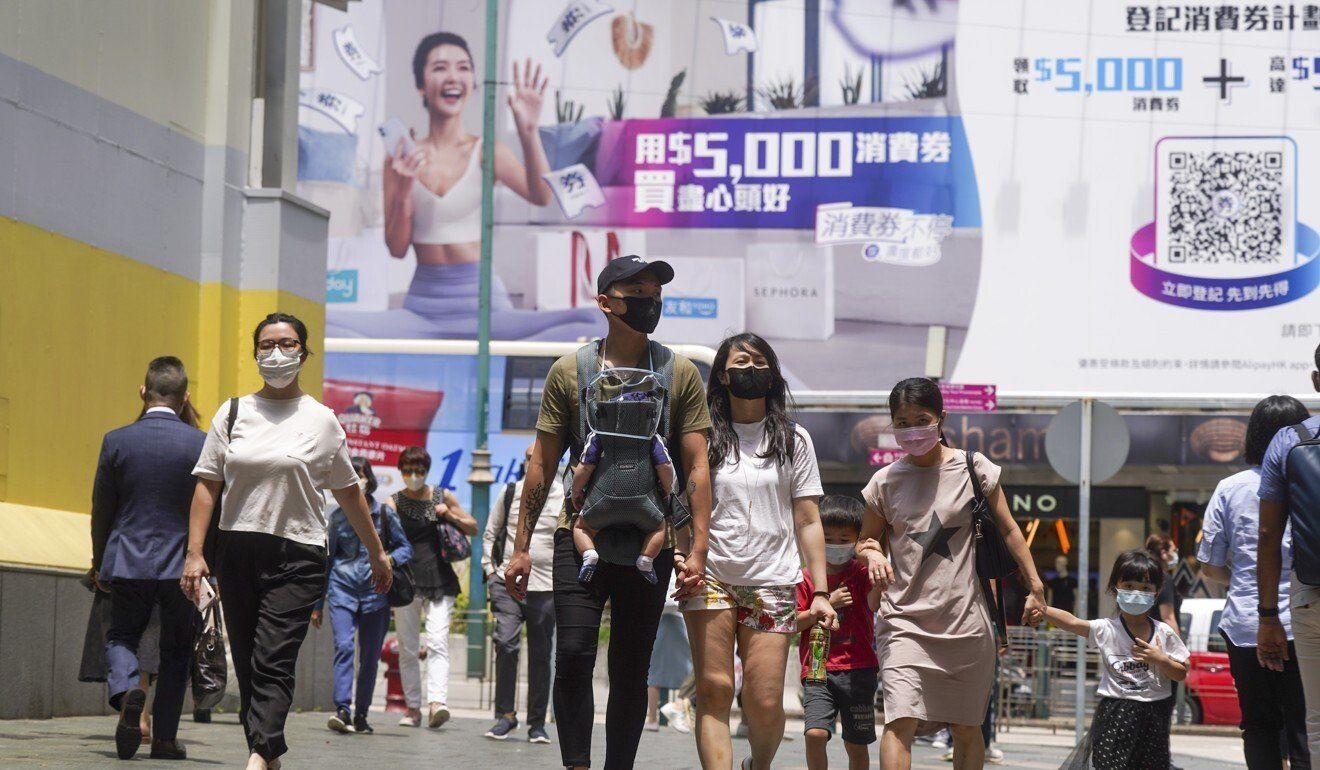Hong Kong News

Hong Kong retail sales up just 2.9 per cent in July, but e-vouchers spark hope
Hong Kong’s retail sales rose 2.9 per cent year on year in July, the lowest increase in six months, though a surge in spending driven by distribution of the city’s electronic consumption vouchers was expected to drive gains in the days ahead.
Provisional figures released by the Census and Statistics Department on Tuesday showed July sales of HK$27.2 billion (US$3.5 billion), up 2.9 per cent compared with the same period last year.
But on a monthly basis, retail sales slipped 3.2 per cent compared with June.
Online sales remained strong, jumping 29 per cent year on year in July, with transactions of HK$2.1 billion accounting for 7.5 per cent of the total value.
For the first seven months of the year, online retail sales are up 50.6 per cent from a year ago.
A government spokesman said retail sales were continuing to improve despite the pace of growth slowing compared with previous months.
 Anecdotal evidence suggests spending in August got a significant boost
from the release of the first tranche of consumption vouchers.
Anecdotal evidence suggests spending in August got a significant boost
from the release of the first tranche of consumption vouchers.
“The electronic consumption vouchers that the government began to disburse in August have helped stimulate consumption sentiment and will render support to the retail business during the rest of the year,” the spokesman said.
Eligible Hong Kong residents are entitled to HK$5,000 worth of e-vouchers, which are being distributed in phases – a HK$36 billion programme aimed at accelerating the city’s economic recovery during the Covid-19 pandemic.
The first batch of coupons worth HK$2,000 were disbursed on August 1, while residents will receive the next tranche depending on which electronic wallet residents have chosen.
The Hong Kong Retail Management Association noted that while retail sales edged slightly upwards in July, the figure was still down about 30 per cent compared with the same period in 2018.
But in a statement issued on Tuesday, the association pointed out that some retailers had seen sales at physical stores jump 50 per cent since the roll out of the vouchers.
ING Bank Greater China economist Iris Pang said the data suggested consumers had held off on spending in July as they waited for the vouchers to arrive.
She noted that supermarket sales dropped 19.4 per cent in July, the biggest drop for the category this year after a 2020 that saw huge surges in grocery spending amid restaurant closures.
Pang feared that dip could signal people had intentionally delayed their spending.
“I worry a lot, because this data implies that people will mainly spend their consumption vouchers on supermarket items,” Pang said.
“The multiplying effect of the consumption vouchers would be very limited [if that happened],” she said, noting it could hamper spending in other areas such as apparel or consumer electronics.
She also said many shopping malls across Hong Kong had been dishing out summer promotions and discounts, indicating retailers were focused on boosting the volume of transactions rather than the total value of goods sold.
Finance minister Paul Chan Mo-po previously said the stimulus effect of the voucher scheme on consumer spending would begin to be felt this month. He estimated the initiative would contribute 0.7 per cent growth to gross domestic product this year.
A total of 6.93 million participants signed up for the scheme before registration ended on August 14, and the vouchers can be spent on everything from retail and dining out to service providers such as nail salons.
Hong Kong is still emerging from a retail slump that dragged on for two years, deepened by months of anti-government protests that slammed mainland Chinese tourist numbers, followed by the coronavirus pandemic.
The decline finally began to be reversed in February, when sales jumped a record 30 per cent year on year, but since then, the pace of recovery has slowed.











